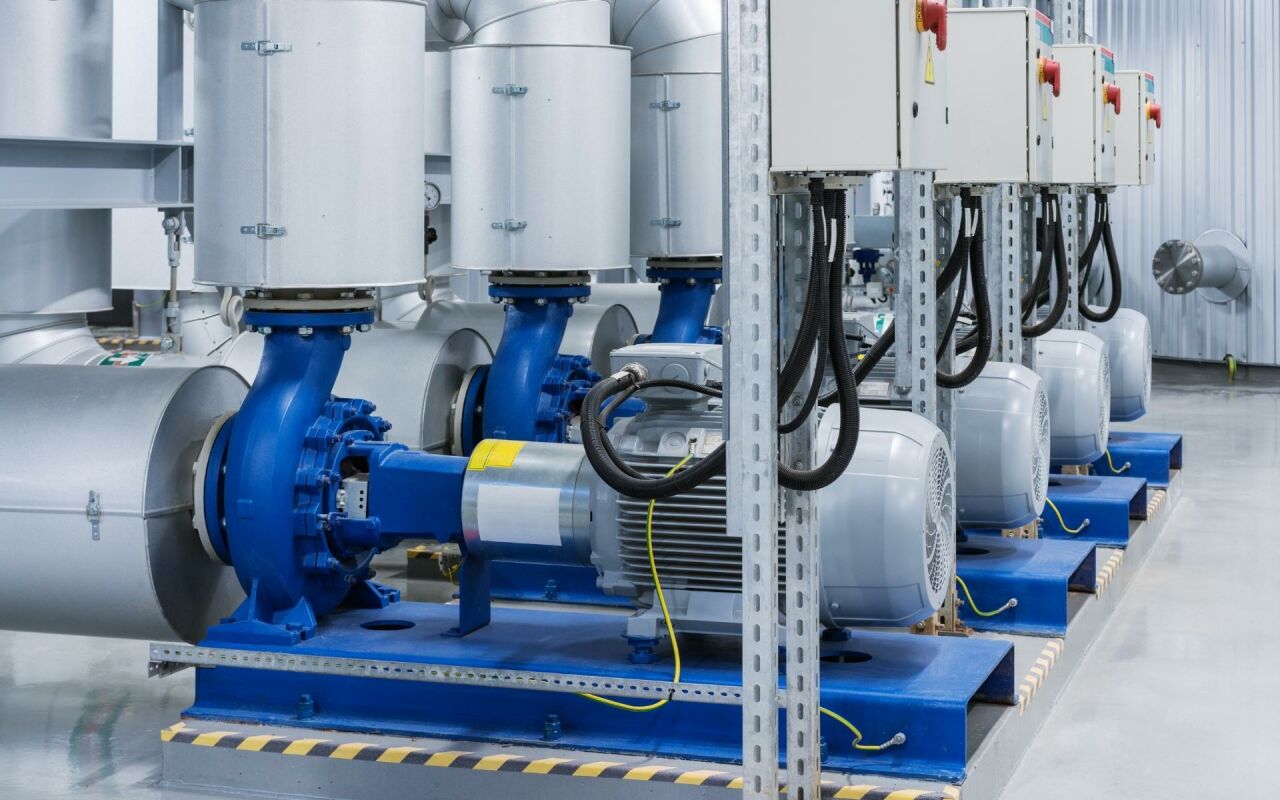Havuz Pompası Seçimi Nasıl Yapılır

Havuz pompası seçimi çok önemlidir çünkü havuzun temiz ve berrak kalması için suyun günde en az bir kez iyice filtrelenmesi gerekir. Havuz sirkülasyon pompası havuza su çekerek havuz filtresine gönderir ve havuz filtrasyon sisteminde önemli bir yardımcıdır. Bu nedenle havuz pompası seçerken havuz filtresi ve kapasite gibi faktörleri göz önünde bulundurmak önemlidir.
Yüzme havuzu seçerken aşağıdaki önemli hususları da göz önünde bulundurmalısınız:
Havuz Pompası Nasıl Seçilir?
Taşma kapasitesi: Havuz pompasının ne kadar su bastığı önemlidir. Havuzunuzun boyutlarına ve ihtiyaçlarına göre uygun taşma kabiliyetine sahip bir pompa seçmelisiniz. Tesisat uyumluluğu: Mevcut tesisatın havuz pompasıyla uyumlu olup olmadığını kontrol edin. Pompa giriş ve çıkış bağlantıları montaja uygun olmalıdır.
Havuz pompası modelleri ve fiyatlarını görmek için tıklayınız.
Havuz pompası seçerken havuzun hacmini doğru hesaplamak önemlidir. Bu talimatları izleyerek havuzunuz için doğru pompa kapasitesini belirleyebilirsiniz.
Havuz hacmini hesapla: Uzunluğu, genişliği ve derinliğini kullanarak havuz hacmini hesaplayabilirsiniz. Örneğin 5m x 10m ölçülerinde ve 1.50m derinliğinde bir havuzunuz varsa hacmi şu şekilde hesaplayabilirsiniz: Havuz hacmi = 5m x 10m x 1.50m = 75m3. Pompa saatlerini ayarlayın: Havuzun günde en az bir kez iyice filtrelenmesi gerektiğini unutmayın. Pompanın kaç saat çalışacağını belirleyebilir, havuzun özelliğine ve kullanım sıklığına göre süreyi seçebilirsiniz. Örneğin pompayı 6 saat kullanmayı planlıyorsanız, havuzunuzdaki suyu 6 saatte bir sirküle etmesi gerekir.
Pompa hacmini hesaplayın: Havuz hacmini pompanın çalışma süresine bölerek saatte pompalanan su miktarını bulabilirsiniz. Örneğin su hacmi 75 m3 olan bir havuzda 6 saatte bir kullanmayı düşündüğünüz bir pompa almak istiyorsanız 75 m3 / 6 saat = 12,5 m3/saat su basma kapasitesine ihtiyacınız var. Sonuç olarak yukarıdaki hesaplamalar gösteriyor ki 75 ton serbest suyu 6 saatte sirküle eden bir havuz sirkülasyon pompasına ihtiyacınız var. Bu hesaplama, gerekli pompanın 1 beygir gücünde (hp) bir havuz suyu pompası olduğunu gösterir.
Havuz pompası ne kadar süre çalışmalı?
Havuz pompası çalışma süresi havuz kullanım yoğunluğuna, hava şartlarına ve kirliliğe göre değişiklik gösterebilir. Genel olarak çalışma saatleri aşağıdaki faktörlere göre belirlenir:
Kullanım yoğunluğu: Havuzun kullanım sıklığı pompanın çalışma süresini etkiler. Daha fazla kullanılan havuzlar daha uzun hizmet ömrü gerektirebilir.
Hava koşulları: Sıcak havalarda ve güneşli günlerde suyun daha hızlı bozulabileceği ve kimyasal dengesinin bozulacağı dikkate alınmalıdır. Bu durumda pompa daha uzun süre kullanılabilir. Kirlilik durumu: Havuzun kirlilik seviyesi, daha katı su filtrasyonu gerektirebilir. Özellikle havuzda ağaç veya bitki bulunan alanlarda, sürekli olarak havuza yaprak ve diğer partiküller düşüyorsa pompa daha uzun süre kullanılmalıdır.
Yaz aylarında yün havuzları için genellikle günde 10-12 saat çalışılması önerilir. Ortak havuzlarda ise 24 saat çalışma saatleri tercih edilmektedir. İlkbahar ve kış aylarında hava şartlarına ve havuz kullanımına bağlı olarak çalışma saatleri kısalabilir. İlkbahar güneşinin durumuna göre çalışma süresi 3-6 saate, kışın 1 saate kadar kısaltılabilir.
Ancak her havuzun koşulları farklı olabilir, bu nedenle sürüş süresi belirlenirken hava koşulları, kullanım yoğunluğu ve kirlilik göz önünde bulundurulması önemlidir. Havuzun temiz ve berrak olması için su parametrelerini düzenli olarak kontrol etmek ve gerekirse ayarlamak da önemlidir.
Pompa kapasitesi nasıl hesaplanır?
Havuz pompası kapasitesi seçimi, havuzunuzun boyutlarına ve ihtiyaçlarına bağlıdır. Doğru pompa kapasitesini seçmek, havuzunuzun temizleme ve filtrasyon ihtiyacını karşılar ve aşırı enerji tüketiminden kaynaklanan sorunları önler. Pompa kapasitenizi seçin: Pompa kapasitesi genellikle beygir gücü (hp) olarak ifade edilir. Havuz pompalarının güçleri tipik olarak 0,5 ila 3 HP arasında değişebilir. Pompa kapasitesi seçerken havuzunuzun ihtiyaçlarını karşılayan bir pompa seçmeniz önemlidir. Genel olarak orta büyüklükteki havuzlar için 1 hp veya 1,5 hp pompa gücü uygun olabilir. Ancak havuzun özelliklerine ve ihtiyaçlarına göre pompanın gücünün ayarlanması önemlidir.
Doğru havuz pompası kapasitesini seçmek, havuzunuzu en iyi durumda tutacak ve boruların veya diğer ekipmanların aşırı su basıncından zarar görmesini önleyecektir. Doğru pompa ve filtre kombinasyonu, havuzunuzdan en iyi şekilde yararlanabilmeniz için suyunuzu temiz ve berrak tutacaktır.
Havuz motoru çok elektrik harcıyor mu?
Havuz pompası: enerji tasarrufu ve verimlilik için doğru seçim
Havuzunuzun sorunsuz ve verimli bir şekilde çalışmasını sağlamak için doğru havuz pompasını seçmek çok önemlidir. Ancak, pompa verimliliği ve çalışması kadar enerji tüketimi de dikkate alınmalıdır. Enerji verimliliği hem çevresel etkilerin hem de enerji faturalarının azaltılmasında önemli bir faktördür. Havuz pompası enerji tüketimi hakkında bilmeniz gerekenler:
Yüksek verimlilik standartları: Yüzme havuzu pompaları belirli enerji verimliliği standartlarına göre üretilmektedir. Bu standartları karşılayan pompalar aynı performansı sunmakta ve daha az enerji tüketmektedir. Bu nedenle enerji etiketlerini kontrol ederek ve yüksek verimli pompaları tercih ederek enerji tasarrufu sağlayabilirsiniz.
Değişken Hız Teknolojisi: Bazı havuz pompaları değişken hız teknolojisine sahiptir. Bu teknoloji, pompanın hızını düzenleyerek enerji tüketimini optimize eder. Düşük hızlı bir pompa, suyu verimli bir şekilde sirküle ederken daha az enerji tüketir. Bu enerji tasarrufu sağlar ve pompanın ömrünü uzatır. Pompa Boyutu ve Havuz İhtiyaçları: Havuz boyutunuz ve ihtiyaçlarınız, doğru pompa boyutunun belirlenmesinde önemlidir. Gerekenden daha büyük bir pompa kullanılması gereksiz enerji tüketimine neden olabilir. Havuzun hacmini ve dönüş hızını doğru bir şekilde hesaplayarak pompanın gücünü belirleyebilirsiniz. Bu sayede enerji tasarrufu yaparak havuzunuzun ihtiyacını da karşılamış olursunuz.
Düzenli bakım ve temizlik: Havuz pompanızın düzenli bakım ve temizliği enerji verimliliğini artırmak için önemlidir. Kirli filtreler veya tıkalı borular pompanın daha fazla güç tüketmesine neden olabilir. Bu nedenle filtrelerin düzenli olarak temizlenmesi ve pompa bakımının yapılmaması enerji tasarrufu sağlar.
Doğru havuz pompasını seçmek enerji tasarrufu sağlarken aynı zamanda havuzun verimli çalışmasını da sağlar. Enerji etiketlerini ve ürün bilgilerini dikkatlice inceleyerek yüksek verimli ve değişken hızlı pompaları tercih edebilirsiniz. Havuzunuzun ihtiyaçları için doğru boyuttaki pompayı seçerek enerji tüketimini de optimize edebilirsiniz. Enerji tasarruflu havuz pompası ile çevre dostu olabilir ve enerji faturanızı düşürebilirsiniz.
